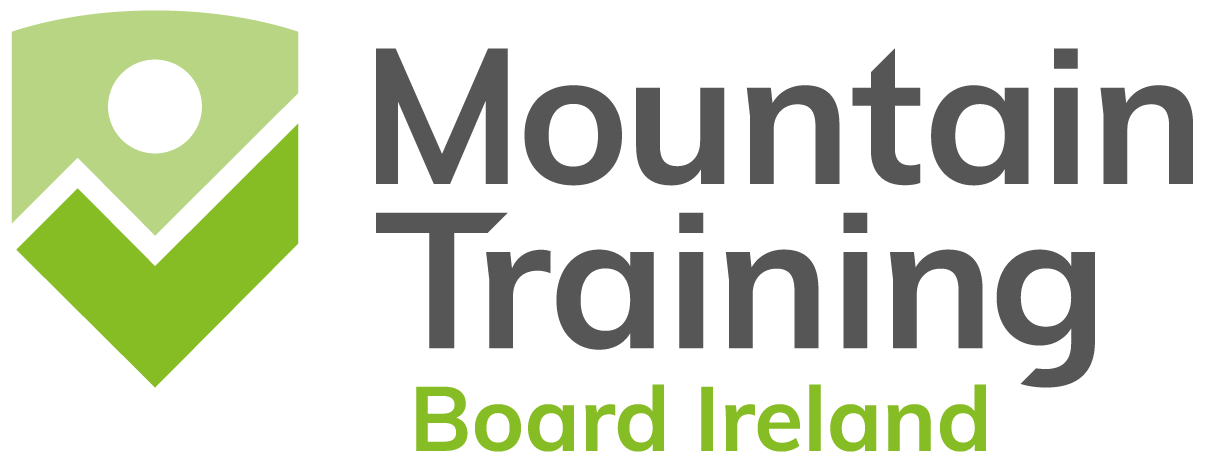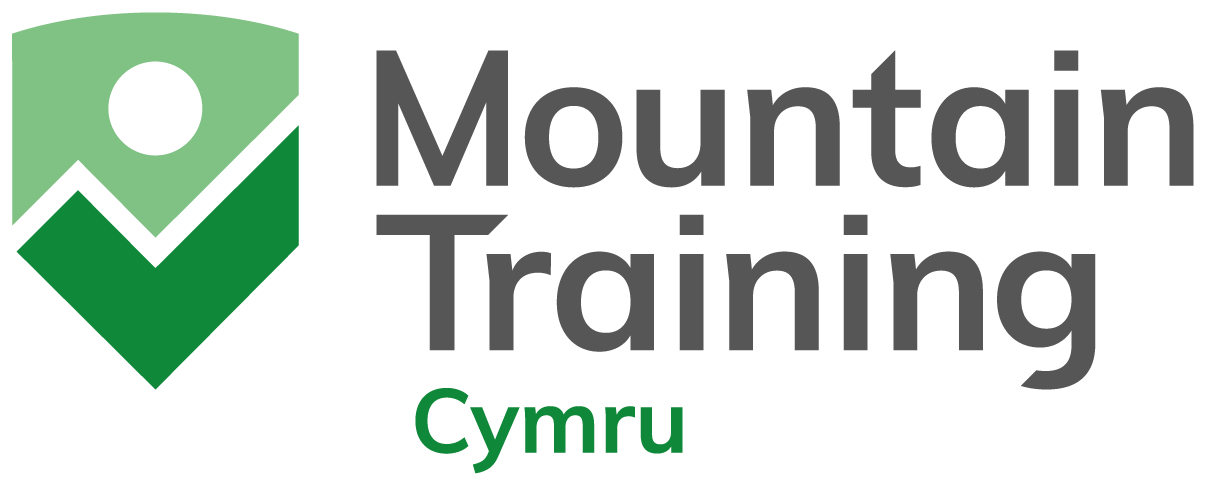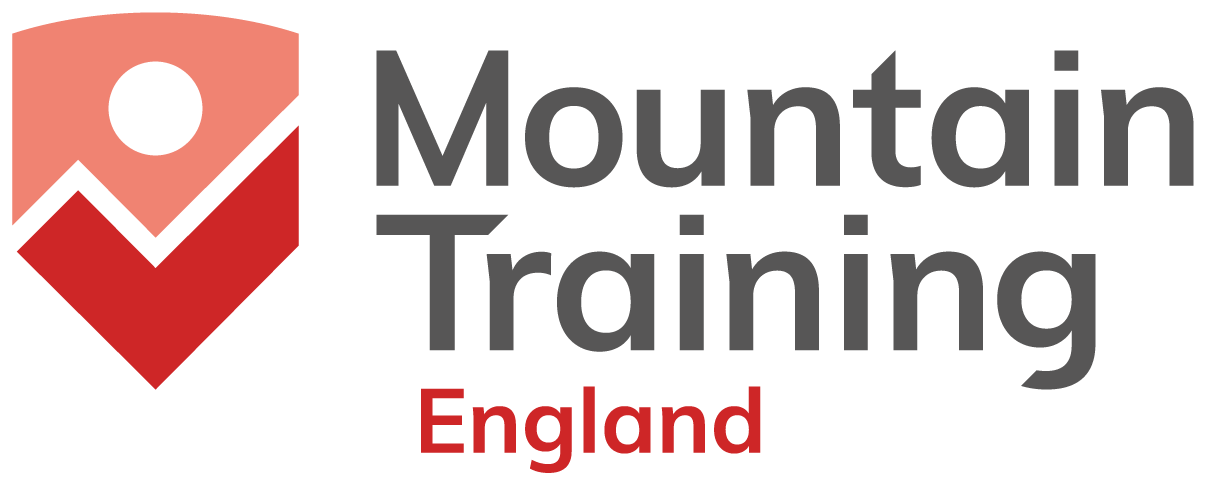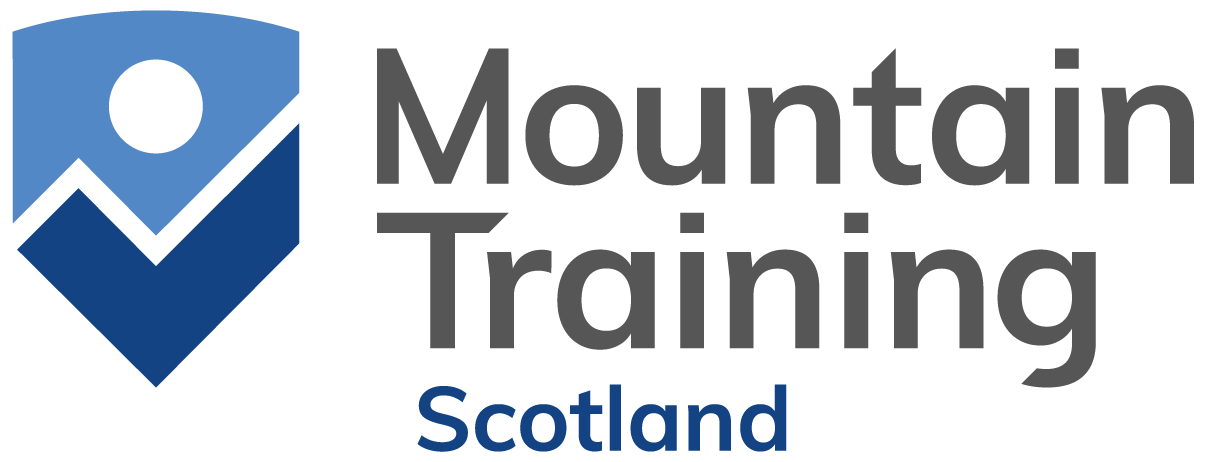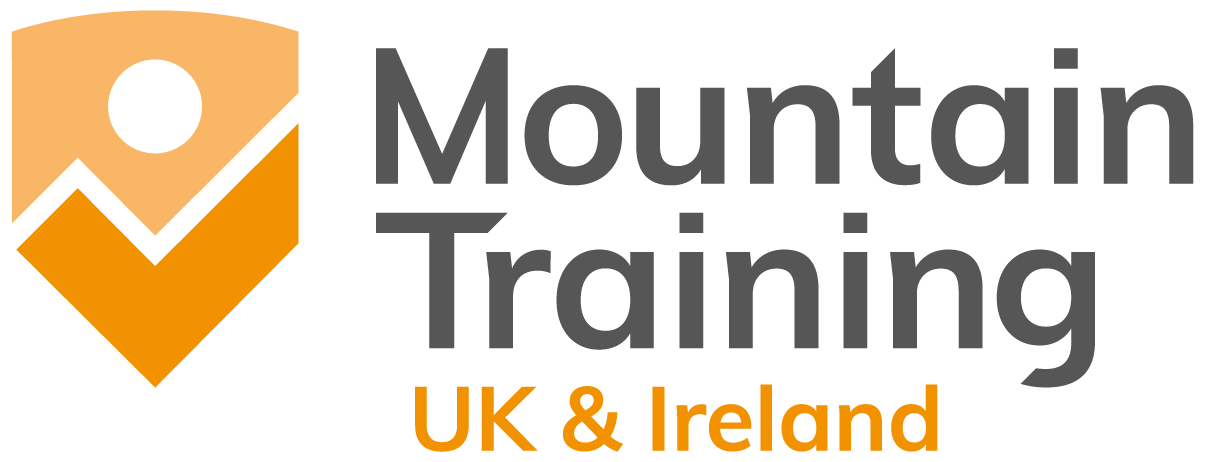Cookie Settings
This site uses third-party website tracking and analytical technologies to help us improve the user experience.
Privacy Policy
About Mountain Training
The Mountain Training brand represents five national Mountain Training organisations* and is used to communicate with the public and promote our qualifications and skills courses.
Mountain Training England, Mountain Training Cymru, Mountain Training Scotland, Mountain Training UK and Mountain Training Board Ireland.
Mountain Training’s Vision
A diverse and active outdoor society, supported by inspirational leaders, instructors and coaches.
Mountain Training’s Mission
To inspire, enable and develop people in walking, climbing and mountaineering through the provision of nationally and internationally recognised skills training and leadership qualifications.
Mountain Training’s Ethos
We believe in:
- The safe enjoyment of walking, climbing and mountaineering. We disseminate guidance on good practice and provide training and qualifications for participants, instructors, leaders and coaches.
- High quality training and assessment delivered by experienced and supportive practitioners.
- Developing independent walkers, climbers and mountaineers who practice and encourage, sustainable and sympathetic use of the outdoors by all users.
- Supporting equal access to our sport for people from all backgrounds. We also believe that all people have the potential to develop leadership and coaching skills if trained appropriately.
- Good leadership is about more than decision making and technical skill; it is about supporting and developing individuals.
- Inspiring people to enjoy walking, climbing and mountaineering with confidence and skill.
Providers, course directors and staff are ambassadors of Mountain Training and your role in promoting our brand is very important and highly valued. As such, we wish to support you wherever possible and have created the following guidelines to help you promote our schemes and our brand.
Branding Guidelines
Consistent and accurate representation of Mountain Training will ensure that the brand of Mountain Training will become more widely recognised by the public and strengthen the overall awareness of both Mountain Training and our schemes.
The brand name
‘Mountain Training’ should always be associated with the scheme you are promoting. This can be done in any or all of the following ways:
- When introducing the scheme, give Mountain Training ownership of it e.g. (on a website) We are an approved provider for Mountain Training’s Lowland Leader qualification. Thereafter, ‘Lowland Leader’ can be used because you have already linked Mountain Training to the qualification.
- When talking about a training or assessment course on social media, give Mountain Training ownership of the qualification by mentioning us (on Facebook: @Mountain Training) or tagging us (on Twitter and Instagram: @MtnTraining) e.g. (tweet) Beautiful sunny day for @MtnTraining #RockClimbingInstructor training today at #Stanage with 6 enthusiastic climbers. (+ add images)
- NEVER refer to Mountain Training as ‘MT’. It sounds like ‘empty’ and is meaningless.
The website
Our website is always the best source of up to date information.
- Put hyperlinks on your web pages that direct candidates to the appropriate scheme page and FAQs on our website. (Good links will also benefit your search engine optimisation.)
- Encourage candidates to download the latest handbook from our website.
- Browse our website regularly to make sure you are up to date with the latest news and aware of the information we are sharing with existing and prospective candidates.
The logo
We encourage approved providers to use the Mountain Training logo when promoting our courses. The Mountain Training logo is used by Mountain Training for national brand identity.
When marketing courses, providers should be explicit in outlining the context of the course within Mountain Training's Skills and Qualification pathways.
Logo use guidelines:
- The logo must only be placed on publicity material that clearly identifies the approved provider.
- The logo may only be used by approved providers, NOT by course directors, staff or candidates.
- The logo may only be used to promote Mountain Training courses rather than suggesting wider endorsement by Mountain Training of the individual or company.
- The logo must be clearly distinguished from the main business branding. The Mountain Training logo should always be presented smaller than that of the business/organisation/individual. If possible avoid using the logo less than 20mm wide.
- If the logo is used online, then it should link to: www.mountain-training.org
- Do not alter the colours of the logo in any way.
- Do not stretch/squeeze the logo in any way.
- Always re-size the logo in proportion.
- Do not make the logo too big. Well thought-out space around a small logo often has more impact than a huge logo.
- Try to avoid using the logo on busy backgrounds, such as complicated textures or busy photographs.
Logo safe space
It is recommended that there is always clear space running around the whole logo. This is to help maintain the integrity of the logo and ensure visibility and legibility.
File choice
- PNG - Portable Network Graphics lines are live therefore they are crisp unlike a jpeg which is made out of pixels and therefore png’s can be used without a border over coloured backgrounds or images. This format is preferable when using the Hill & Mountain Skills logo.
- JPEG - Is not well suited for line drawings, due to their pixels and should be used for images.
- PDF - Everyone can open an ADOBE pdf and therefore is a great transferable format. It is also compatible with all other ADOBE graphics programs.
- EPS – This is a graphics file format. Unless you have a graphics programme you will not be able to open this. However printers, web or graphic designers prefer to work with this format.
Marketing Guidelines
The success of the Mountain Training brand is reliant on high quality delivery and a positive experience. When marketing our courses please refer to the following guidelines and do not hesitate to get in touch if you have any questions. Mountain Training’s marketing is coordinated by our Media and IT Development Officer - Nicola Jasieniecka.
Use the correct terminology
- Avoid using acronyms as much as possible on your website and social media. For example RCI (which sounds like ‘arsey eye’ when said aloud) is meaningless, whereas Rock Climbing Instructor sounds like the title of someone who instructs rock climbing and has much broader appeal.
- Refer to our qualifications as qualifications rather than awards.
In written communication please ensure the following capitalisation:
- Hill & Mountain Skills (with ampersand)
- Lowland Leader
- Hill and Moorland Leader (no ampersand)
- Mountain Leader
- Winter Mountain Leader
- International Mountain Leader
- Climbing Wall Instructor
- Climbing Wall Development Instructor
- Rock Climbing Instructor
- Foundation Coach
- Development Coach
- Performance Coach
- Mountaineering and Climbing Instructor
- Winter Mountaineering and Climbing Instructor
Market the courses you’re approved to provide
- Providers must only market/advertise Mountain Training courses for schemes they have been approved to provide.
- Follow the branding guidelines above.
- If web pages/social media updates display multiple courses and they are not all Mountain Training approved, special care should be taken to ensure potential candidates do not get the impression that Mountain Training are endorsing all courses outlined.
Help people who are new to our world
New candidates often have little or no idea about the various organisations involved in the outdoor sector so it’s always best to assume they know nothing when writing the content of your website or blog posts.
Consideration should be given to outlining the:
- Registration process candidates and participants should follow.
- Reason they need to join a mountaineering council (if appropriate to the scheme you’re promoting).
- Prerequisites for training and assessment.
- Aim and content of the course.
- The provider's and course director’s role in coordinating and running the course.
- Benefits of joining the Mountain Training Association.
There is content on our website that will help with all of the above.
Directors and linked staff
Mountain Training wishes to support all marketing strategies encouraging course participation. Directors and linked staff may market courses on behalf of providers if they:
- Only market courses for providers they are ‘attached’ to (i.e. as ‘Staff’ in the provider account). Staff not linked to provider accounts must not market Mountain Training courses.
- Quote the provider of the courses offered in all marketing communication (e.g. websites, social media).
- Do not give the impression they are solely running/providing the Mountain Training course.
- Ensure post-course social media status updates explicitly outline they were directing/working on the course on behalf of a specific provider (to be named in the update).
Third Party Promotion
It is common for approved providers to team up with a venue to deliver a course, for example a climbing wall or outdoor centre and this is a good opportunity to increase participation on courses.
Third parties must be explicit in their advertising, outlining who is providing the course on their behalf. The logo must not be displayed in a way that indicates wider endorsement of the venue or organisation by Mountain Training, such as in a footer or side bar.
Providers and course directors posting on social media
Providers and course directors are ambassadors for Mountain Training and are approved to deliver courses on our behalf. They are a physical and digital point of contact between Mountain Training and our candidates and as such, should promote our values and ethos. Individuals cannot disconnect themselves from this role and should be mindful of the types of posts and comments they share on social media, particularly on Mountain Training posts and within associated Facebook groups.
Social media can be used effectively to build relationships with future customers, maintain communication with existing customers and raise brand awareness. We encourage providers and course directors to use social media to raise the profile of Mountain Training’s schemes and their own courses and we can support you to do so effectively.
Bear in mind that once something has been posted, including a picture, you lose control over that piece of content, even if you delete it. You never know who may have seen it, taken a screenshot of it or shared it. There is no such thing as a private Facebook group with regards to the content you post.
All providers, course directors and tutors are encouraged to contact Mountain Training directly if they have any issues, questions or concerns about anything Mountain Training-related rather than taking to social media to vent or ask the audience. This includes, and is not limited to: syllabus content, scheme pathways, scheme reviews, registration fees, CMS/DLOG/tahdah and Mountain Training Association membership.
Potential customers often use social media to choose a provider or ask for advice and it reflects badly on the individual and Mountain Training if social media is used as a place to complain, vent frustration, be unhelpful or obstructive. If in doubt, please refer to the section below, ‘Posting on social media’.
Use of social media
The use of social media to market Mountain Training’s schemes and courses can be very effective. Mountain Training has a presence on various platforms and we encourage you to interact with us through them as part of your marketing efforts.
- Facebook - https://www.facebook.com/MountainTraining
- Instagram - @MtnTraining
We will ‘Like’, share and/or comment on the content where appropriate depending on the social media platform if you tag us or mention us in your post.
Images are crucial to all social media platforms so avoid posting anything promotional without a photo or two.
Use hashtags to help increase the reach of your posts which either relate to the specific scheme and/or the broader activity. E.g. #LowlandLeader, #MountainLeader, #RockClimbingInstructor, #walking, #climbing, #Snowdonia, #WestHighlands, etc.
If you would like some basic guidance on the use of social media to market Mountain Training please contact Nicola Jasieniecka for further support.
Posting on social media
It is recognised that social media is a balance of timing, interest and engagement and that many issues can ignite discussion. Both positive and negative online discussion is healthy and to be expected, however all posts/comments from Mountain Training should fall within this framework:
- Treat all social media postings as a public comment.
- Do not make statements that are misleading, false or likely to injure a person’s or organisation’s reputation.
- Do not make statements that might bring Mountain Training, its providers, stakeholders or suppliers into disrepute.
- Be aware that sharing or posting a viewpoint of another organisation can be construed as endorsement. Pay special care to medical, political, gender and environmental issues.
- Avoid discussion of religion and race.
- Do not share content from the Daily Mail. For so many reasons, in particular their approach to, and comments on, mountain accidents.
- Do not blindly share brand video: their brand values may not align with Mountain Training’s or they might be advocating a cause we do not align with.
- Do not swear.
- Abusive, discriminatory, intimidating or offensive statements will not be tolerated, and offending posts will be removed. Pay particular attention to laddish banter style comments and remove them.
- Think twice. If you are uncertain about posting, reposting, sharing or commenting on anything then think twice and ask for a second opinion from the Media & IT Development Officer or Technical Officer.
Marketing Support
If further support is required please contact:
Media & IT Development Officer
Phone: 01690 720128
Email: nicola@mountain-training.org
Target audience and unique selling point
If you have a captive audience for whom you run your courses (e.g. a collection of schools/colleges), marketing to your target audience is less important than if you accept independent bookings.
Target audience
Your target audience is the group of people you are aiming to appeal to. It is not possible to market your courses to everyone because everyone has different interests, so you need to narrow it down. Ask yourself a series of questions, for example: How old are they? What are their interests? Where do they go on holiday? What do they do for work? Once you have some answers to these questions, create a persona and imagine you’re writing all of your website and/or social media content with this person (/these people if you have more than one persona) in mind. Remember, they might not necessarily all be like you.
Unique selling point
Why are our qualifications/schemes worth doing? Compared to other things that people could be doing for work, pleasure or volunteering?
Good marketing involves highlighting what makes your ‘product’ different from the others. Your product is our courses (qualifications or skills) and the amazing things people can do as a result. For the majority of people it’s not about the money they might earn, it’s about the adventures they can have and the challenges they can overcome. As one of our providers, part of your role is to spread the word about our schemes so that as many people as possible know that they exist and understand the benefits of getting involved. (This is one of the main reasons why we’ve started avoiding acronyms as much as possible – they’re meaningless and uninspiring.)
Feedback is vital for survival
If you want people to promote you as a provider (or even have them return as a repeat customer), they need to have had a positive experience. This doesn’t necessarily mean they laughed and smiled every second of the course, but even a long training course or a challenging assessment can be a positive experience so it’s worth finding out what people thought about your course.
- Use customer feedback to promote your courses. There’s nothing quite like a strong recommendation to sell the experience to future customers.
- Use customer feedback to improve your courses. It’s always good to know what you’re doing well and where you might be able to develop.
Consider paid advertising
There are various options for this including:
- The Professional Mountaineer (the joint association quarterly magazine).
- Facebook – there are two main options; ‘boosting’ your post or running an ad. Both enable you to target certain demographics or those with particular interests and you can set a budget so you only pay what you can afford.
- Google AdWords (and other search engine advertising platforms) – can be targeted to certain demographics or those with particular interests. It works on a pay per click basis and you can set a budget so you only pay what you can afford.
